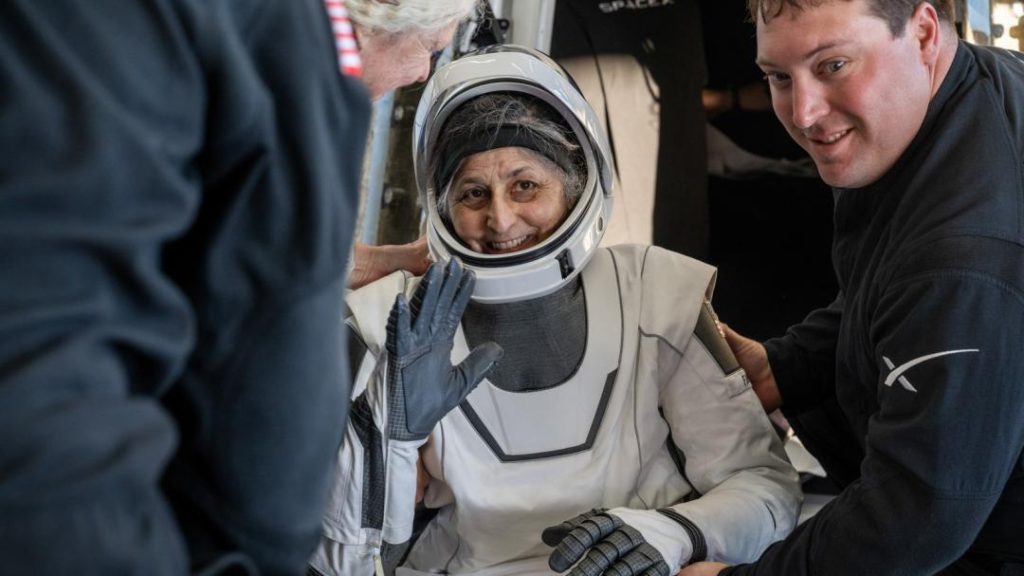
What Happens to the Human Body After Nine Months in Space?
Space travel has come a long way since the first humans ventured into space in the 1960s. Today, astronauts can spend months, even years, in space, conducting scientific research, performing spacewalks, and exploring the vastness of the cosmos. However, prolonged space travel comes with its unique set of challenges, and one of the most significant is the impact it has on the human body.
After nine months in space, astronauts undergo significant transformations that can have long-term effects on their physical health. One of the most striking changes is the loss of muscle and bone mass. In the absence of Earth’s gravitational pull, the body sheds bone density at a rate of nearly 1% per month. This can lead to a significant loss of bone mass, increasing the risk of fractures upon return to Earth.
This phenomenon is known as “space osteoporosis,” and it’s a major concern for astronauts who plan to spend extended periods in space. The loss of bone density is particularly pronounced in the spine, hips, and legs, which are the areas most prone to fractures. This can have serious consequences for astronauts, making it more difficult for them to perform even the simplest tasks upon return to Earth.
Another significant change that occurs in the human body after nine months in space is the shrinkage of the heart. Without the need to pump blood against the force of gravity, the heart becomes less efficient, leading to a reduction in its size. This can lead to a decrease in cardiac output, making it more difficult for the body to pump blood effectively.
This change in heart size and function is not unique to astronauts, as people who live in low-gravity environments, such as those with paraplegia, experience similar changes. However, for astronauts, the consequences of a shrunken heart can be more severe, as they may be at a higher risk of heart problems upon return to Earth.
In addition to muscle and bone loss, and changes in the heart, astronauts also experience a range of other effects on their bodies. One of the most noticeable is the impact on their vision. Without the constant pull of gravity, the shape of the eyes can change, leading to blurred vision. This can be a significant problem for astronauts, as it can affect their ability to perform tasks that require precise vision, such as navigation and scientific experiments.
Other effects on the body can include changes in the immune system, as the body’s natural defenses are suppressed in space. This can make astronauts more susceptible to illness and infection, which can be a major concern in the confined environment of a spacecraft.
Finally, there is the issue of sleep and rest. In space, the lack of a consistent day-night cycle can disrupt the body’s natural rhythms, making it difficult for astronauts to get a good night’s sleep. This can lead to fatigue, irritability, and decreased performance, which can have serious consequences for space missions.
So, what can be done to mitigate these effects on the human body? Researchers are working to develop countermeasures that can help prevent or reduce the severity of these effects. One approach is to use exercise equipment, such as treadmills and stationary bikes, to maintain muscle mass and bone density. Another approach is to use specialized suits and equipment to simulate the effects of gravity, such as the use of rotating sections of the spacecraft or specialized exercise equipment that provides resistance similar to gravity.
In addition, researchers are working to develop more effective treatments for the effects of prolonged space travel. For example, they are investigating the use of medication to help prevent bone loss and to improve cardiovascular function. They are also working to develop more effective ways to manage the effects of sleep and rest disruption, such as using specialized lighting and sound systems to simulate a day-night cycle.
In conclusion, the human body undergoes significant changes after nine months in space. Muscle and bone loss, changes in the heart, and blurred vision are just a few of the many effects that can occur. While these changes can be significant, researchers are working to develop countermeasures that can help prevent or reduce their severity. By understanding the effects of prolonged space travel on the human body, we can better prepare astronauts for the challenges they will face and ensure their safety and well-being during their time in space.
Source:
https://indianexpress.com/article/world/what-happens-human-body-nine-months-space-9888241/lite/






